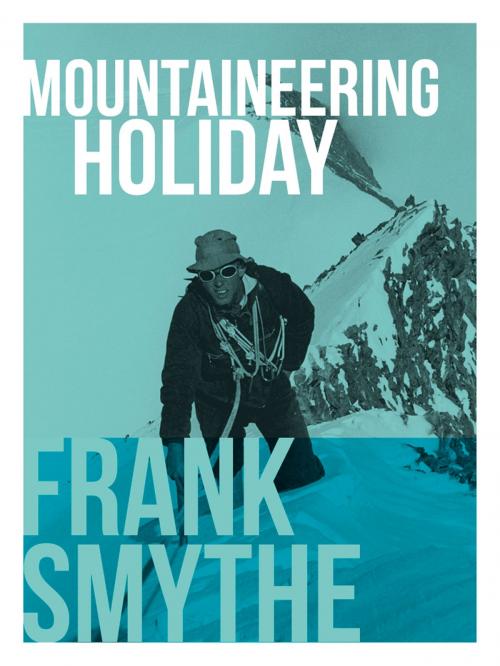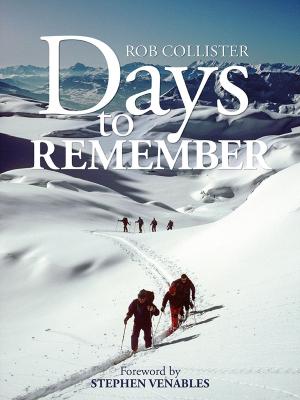Mountaineering Holiday
An Outstanding Alpine Climbing Season, 1939
Nonfiction, Science & Nature, Science, Earth Sciences, Geography, Sports, Outdoors, Mountaineering, Travel, Adventure & Literary Travel| Author: | Frank Smythe | ISBN: | 9781906148867 |
| Publisher: | Vertebrate Publishing | Publication: | February 14, 2014 |
| Imprint: | Vertebrate Digital | Language: | English |
| Author: | Frank Smythe |
| ISBN: | 9781906148867 |
| Publisher: | Vertebrate Publishing |
| Publication: | February 14, 2014 |
| Imprint: | Vertebrate Digital |
| Language: | English |
There is no holiday like a mountaineering holiday. For eleven months the mountaineer has sighed for the mountain wind on his cheek, for the lilt of the mountain stream, for the feel of rock in his hand, for the crunch of frozen snow beneath his feet, for the smell of mist and the fragrance of alp and pine forest. 'In his spare moments he has read about mountains, pored over maps, and studied guidebooks. Then comes the day when he inspects his boots, his ice axe, and his rope. He packs his rucksack. He buys his railway ticket. The incredible has become credible. For two weeks, three weeks, or a month he will escape from civilisation and all its works; he is off to the mountains.' In Mountaineering Holiday, Frank Smythe records 'an outstanding Alpine climbing season' - his 1939 summer holiday Writing in his typically engaging style of keen observation, entertaining anecdote and remarkable knack for description, Smythe takes the reader with him on his trip into the Alps. Arriving unfit and out of practice, he gets stuck behind slower climbers and spends rainy days confined to the valleys before making an impressive number of successful ascents and historic climbs: Mont Tondu, the Aiguille de Bionnassay, the Brenva Face - and an ascent of the Innominata Ridge of Mont Blanc. There is a wonderful sense of familiarity about the book. Smythes's experiences and emotions are instantly recognisable by the modern climber, evoking memories of other trips and mountain days. And his examination of our need for mountains and wild places reaches conclusions that strike a chord with everybody who enjoys the great outdoors. Yet this is the 1930s. Mountaineering equipment and technique are in their infancy. Attitudes within climbing are markedly different to those of today and the first ascents of many major routes are still to be claimed. Europe is on the brink of war and fearful of the future. The book's final climb is made with four young Germans - mere days before World War II …
There is no holiday like a mountaineering holiday. For eleven months the mountaineer has sighed for the mountain wind on his cheek, for the lilt of the mountain stream, for the feel of rock in his hand, for the crunch of frozen snow beneath his feet, for the smell of mist and the fragrance of alp and pine forest. 'In his spare moments he has read about mountains, pored over maps, and studied guidebooks. Then comes the day when he inspects his boots, his ice axe, and his rope. He packs his rucksack. He buys his railway ticket. The incredible has become credible. For two weeks, three weeks, or a month he will escape from civilisation and all its works; he is off to the mountains.' In Mountaineering Holiday, Frank Smythe records 'an outstanding Alpine climbing season' - his 1939 summer holiday Writing in his typically engaging style of keen observation, entertaining anecdote and remarkable knack for description, Smythe takes the reader with him on his trip into the Alps. Arriving unfit and out of practice, he gets stuck behind slower climbers and spends rainy days confined to the valleys before making an impressive number of successful ascents and historic climbs: Mont Tondu, the Aiguille de Bionnassay, the Brenva Face - and an ascent of the Innominata Ridge of Mont Blanc. There is a wonderful sense of familiarity about the book. Smythes's experiences and emotions are instantly recognisable by the modern climber, evoking memories of other trips and mountain days. And his examination of our need for mountains and wild places reaches conclusions that strike a chord with everybody who enjoys the great outdoors. Yet this is the 1930s. Mountaineering equipment and technique are in their infancy. Attitudes within climbing are markedly different to those of today and the first ascents of many major routes are still to be claimed. Europe is on the brink of war and fearful of the future. The book's final climb is made with four young Germans - mere days before World War II …















